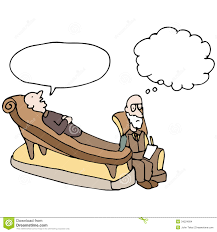What’s the difference?
A Psychiatrist, a Clinical Psychologist, a Counselling Psychologist, a Psychotherapist and a Counsellor walk into a ballet class with good attitudes and go to the barre.
The ballet master says how may I help you?
As one, the therapists reply “we would like to help your dancers.”
The ballet master and dancers look confused, “that’s great,” said the ballet master, “but don’t you all do the same thing?”

This may have started off sounding like one of those awful “a man walks into a bar” jokes but there’s a good reason for this article. I’ve written this because these are all titles for those who specialise in aspects of how the mind works, and each of them has a different approach depending on their training.
Therefore it’s not surprising that their apparently similar titles are rather confusing to most people. In my personal experience, this seems to be especially true as to how the different specialisms relate to the world of dancers.
The question is, when do you need help from a psychiatrist or work with a clinical psychologist instead of a sports psychologist. When would it be better to talk to a psychotherapist and not a counsellor and vice versa?
Essential differences
If one of these people had been a sports or performance psychologist, then the dancers and Ballet Master would have had some idea what to expect from them, and when to seek help from one. But would anyone have any idea as to whether they’d be able to help with the mental health issues of a dancer suffering from depression or an eating disorder?
So what are the essential differences between them you might ask, what makes one better than another for a particular situation? As you can imagine, there’s a considerable overlap between these professions. They’re all dealing with some aspect of the way that the human mind works, and they all work at helping their patients to overcome mental health difficulties in slightly different ways.
It’s important to note that the only therapist who is quite different when it comes to working with the mind are psychiatrists, they’re also qualified as medical doctors. This means that they can diagnose mental health conditions and prescribe medication such as anti-depressants for their patients’ mental health issues which no other therapists are able to do.
Beacause other countries have different training and legal requirements, these definitions are all based on the UK training and regulations for practitioners who work with clients on a one to one basis and excludes any type of research psychologist.

Counsellors
Counsellors generally focus to what’s happening to you in the ‘here and now’. They help you to look at how this is affecting you in the present, rather than delving deeper into your childhood and past, although this may come up. Difficulties at work or home; a traumatic event such as a bad break up, losing your job, or even just feeling more stressed than usual, are all situations that a counsellor can help you with. A counsellor looks at how you are currently feeling and behaving. They will want to know if you’re more anxious than usual, or perhaps feeling tired and irritable all the time.
Counselling modalities
They will focus on looking at the symptoms and then give you a number of workable, short-term tools to help you break away from the negative thoughts and habits that are affecting you. This form of therapy is a short-term process and means that a course of counselling normally runs for six to ten weekly sessions. In certain circumstances, a slightly longer period of up to six months may be needed.
There are many different models of counselling, the most common ones being Person Centred, Humanist, and Transactional Analysis. The British Association for Counselling & Psychotherapy (BACP) lists 29 different modalities for counselling and psychotherapy, so there is no wonder everyone’s confused.

Psychotherapists
A psychotherapist is similar to a counsellor and will also provide a safe and confidential environment for you to share your thoughts and concerns. However, a psychotherapist’s approach to helping you resolve your current issues is different to that of a counsellor.
This is because they take a more in-depth view of your current situation that works towards helping to manage longer term emotional patterns and habits. Psychotherapy is based on the theory that by helping you to understand previous experiences and emotions encountered in childhood and adolescence you can see how they’re influencing your life now.
This is in addition to working on the issues that you are currently experiencing. Having a better understanding of the past often helps you to shed light on how these experiences have shaped who you are today, and why you are reacting in a particular way to something.
A psychotherapist will place an emphasis on creating a space for you to feel comfortable to open up and share experiences from your past. The idea being that once these buried experiences and their accompanying emotions are brought to the surface, they can be fully processed, and ultimately, released. For this reason, psychotherapy sessions may need to be a more frequent and long-term process. Sessions can be anywhere from one to five times a week over six months up to several years for severe cases.
A counsellor will be more focused on helping you deal with anxiety, stress or difficulties sleeping, but a psychotherapist will do this too. The difference is that the psychotherapist will also help you to deal with mental health conditions that have developed over a longer period of time. Therefore, a psychotherapist will work with more complex mental health conditions, such as PTSD, OCD, and chronic, long-term anxiety disorders. Depending on their approach, a psychotherapist might also choose to use counselling techniques alongside psychotherapy as part of their treatment plan.
Confusion?

Just to add to the confusion a psychotherapist may also be a qualified psychiatrist, psychologist, or other mental health professional who has chosen to take additional specialist training in psychotherapy.
Whilst there are a lot of different forms of psychotherapy, the most common approaches are: Psychodynamic, Jungian and Psychoanalytic.
“Who looks outside, dreams; who looks inside, awakes” – Carl Jung, whose ideas formed the basis of Analytical Psychology.
Counselling psychologists
Psychology is defined by the British Psychological Society as ‘the scientific study of the mind’ based on the study of human behaviour. Psychologists are primarily concerned with the study of how people think, act, react and interact.
A counselling psychologist differs from a counsellor or psychotherapist primarily from an educational standpoint as they will have studied psychology at university and afterwards made the decision to move out of a research role and chosen to complete a postgraduate qualification in counselling psychology to allow them to practice counselling.
As a result, a counselling psychologist is likely to come from a slightly different perspective to a psychotherapist or a counsellor. Having studied psychology at university, they’ll have researched the mind and human behaviour, which usually makes their approach more science-focused. For this reason, you’ll typically find counselling psychologists working in hospitals, schools, nursing homes and rehab units, as well as working privately with clients. They are more likely to use Cognitive Behavioural Therapy (CBT), dealing with the ‘here and now’ symptoms to change their client’s thought patterns.
Clinical psychologists
There’s a lot of overlap when it comes to a clinical psychologist and a counselling psychologist. Both have completed their undergraduate degree in psychology, and then chosen to complete additional training (in either counselling psychology or clinical psychology, respectively). Both are usually employed in similar settings like hospitals, schools, universities and different health establishments, with many also working privately.
The main differences can be found in the types of issues they work with. A counselling psychologist will tend to work with healthier clients, that is, those experiencing more surface-level emotional and social issue. A clinical psychologist will normally work with people suffering more complex mental health conditions such as personality disorders and major depressive disorders.

Psychiatrists
Unlike the other therapists, all psychiatrists are medically-qualified practitioners who will have spent between five and six years training as a medically-qualified doctor. They will have then worked as a doctor in general medicine and surgery for at least a year before moving into practising psychiatry and have had at least six years of additional training in working with people with psychological problems.
Psychiatrists use a “biopsychosocial” model of understanding that recognises the importance of a person’s past experiences, family, culture, surroundings and work as well as any associated medical conditions in their assessments of patients. They are trained to use a range of psychological treatments to diagnose mental illnesses by assessing a person’s state of mind and are able to prescribe a range of medications.
In addition to these ‘core’ skills, psychiatrists then specialise in working with the particular problems that affect different groups of people who may require the additional support of medications to help them manage their mental health issues.
Therapist’s own personal therapy
You may be interested to learn that all psychotherapists and counsellors who are registered with BACP and UKCP and are trained on their accredited courses, are required to undertake a minimum of 40 weeks of personal therapy during their training. Counselling psychologists, who are registered with the BPS, are also required to undergo therapy. This is, not only to know what it is like to experience the therapy from the patients perspective but they will have worked through their own issues before working with clients.
Psychiatrists and clinical psychologists are not required to undertake therapy during their training.
In the UK, when looking for a therapist other than a psychologist, be sure to see a therapist who is a member of the BACP or UKCP. This will give you the confidence to know that they have completed accredited training and you also have a an organisation to go to if you have a complaint.
Clinical and counselling psychologists who see clients, are regulated in the UK by the Health and Care Professions Council (HCPC)
UKCP – UK Council for Psychotherapy www.psychotherapy.org.uk
BACP – British Association for Counselling and Psychotherapy www.bacp.co.uk
BPS – British Psychological Society www.bps.org.uk

Comments are closed.